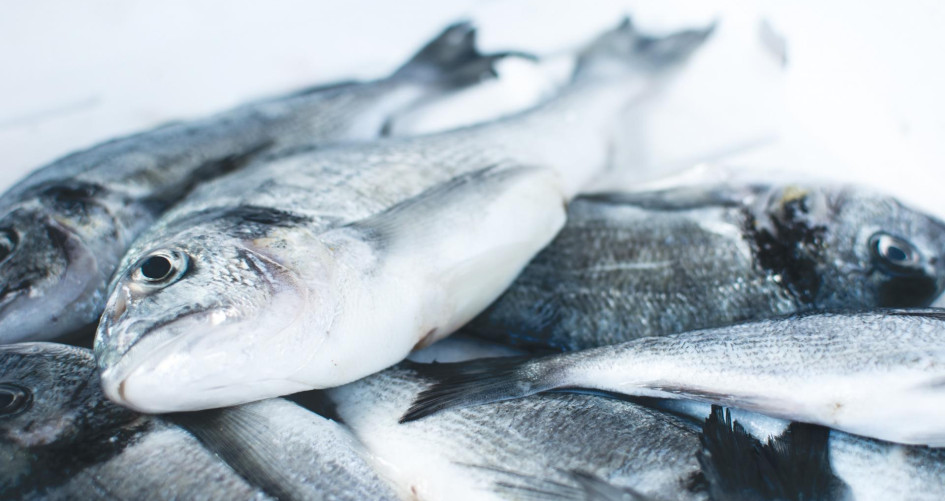Overfishing – when more fish are caught than can be replaced through natural reproduction – is one of the biggest issues marine ecosystems face today. This can happen either directly, or indirectly through bycatch - the capture of unwanted sea life while fishing for a different species.
Our Fish works to end overfishing and restore a healthy ocean ecosystem and is calling for an end to overfishing as a critical and significant action to address the biodiversity and climate crisis.
“Our seas have been heavily overfished and the ecosystems degraded over many decades,” says Rebecca Hubbard, Our Fish’s Program Director, who highlights the fact that European seas are the most heavily trawled in the world. “In Europe, more than 40 per cent of fish populations are still overfished in the Northeast Atlantic, while around 90 per cent are overfished in the Mediterranean.”
This is of course, not just a European problem. According to the Food and Agriculture Organization of the United Nations (FAO), the number of overfished stocks globally has tripled in half a century and today fully one-third of the world's assessed fisheries are currently pushed beyond their biological limits.
Freshwater fish are also under threat: a recent report from 16 global conservation organisations revealed that nearly one third of freshwater fish species are threatened with extinction, while there has been a 76 per cent decline in migratory freshwater fish since 1970.
Apart from the obvious issues of species extinction, overfishing has a huge impact on marine ecosystems and the climate. “Overfishing and destructive fishing not only devastates fish populations and wildlife, breaks down the food web and degrades habitats,” says Hubbard. “It undermines the ocean’s ability to perform critical ecosystem services such as storing carbon that is needed for climate mitigation.”
Equally important, and often underreported, is the role overfishing plays in climate change. “The ocean, and the life that dwells in it, is the largest carbon sink of our planet, absorbing more than 25 per cent of all CO2 emissions, and over 90 per cent of the excess heat generated by humans,” Hubbard says.
“Marine species, as part of the ocean’s carbon pump, have an indispensable role in mitigating climate change; an ocean teeming with life facilitates carbon sequestration, with scientists estimating that fish contribute 16 per cent of the total ocean carbon flux,” she adds.
“Recent scientific research has found that fishing activities remove significant amounts of blue carbon from the ocean, releasing it into the atmosphere; on top of this, fishing fleets emit millions of tonnes of CO2 each year from burning fuel (the EU alone emits 7.3 million tonnes per year), which is further exacerbated when destructive fishing like bottom trawling is involved. [This results in] carbon stored in seafloor sediment being ploughed up and re-suspended by heavy nets, which may have otherwise been sequestered for millennia. Scientists behind this research will be presenting their work on June 26th, ahead of the UN Ocean Conference in Lisbon.
And while fish numbers have rebounded in EU waters in the past decade or so, an EU report released last year revealed that overfishing is again on the rise, with 43 per cent of Atlantic and 83 per cent of Mediterranean fish populations assessed are overfished. And, according to Hubbard, unless things change, the fish stocks in a variety of European waters could collapse.
“We are already seeing huge declines in populations of historically important fish, such as cod and herring, in many seas throughout Europe,” she says. “In the Baltic Sea we are seeing ecosystems collapse from chronic overfishing combined with the impacts of pollution and increasingly, warming waters, which has led to many fishers dropping out of the industry.”
Part of the issue, Hubbard says, is that leaders don’t understand the full range of ecological and climate impacts that unsustainable fishing has on the ocean, and the impact that has on the ocean’s ability to perform those critical ecosystem services such as heat absorption, oxygen production and carbon storage. “We need governments to shift from thinking that fishing is just about one small industry that provides food to people and only of interest to Fisheries Ministers, to seeing fishing as a critical impact to be holistically managed in order to maintain planetary health for all,” Hubbard says.
While Hubbard is optimistic that change can happen, it will take everyone working together. “If we want systemic, lasting change, we need to think big and to act together,” she says. “We need to hold our leaders to account. When we campaign together, we can achieve great and positive changes, whether locally, nationally or across continents. And frankly, we need to change the system, not just our individual behaviour.”
Three ways you can help
Join the movement
Join a growing movement of passionate ocean protectors by signing the Our Fish petition calling on EU politicians to end overfishing.
Get involved in a local campaign
There are lots of fantastic campaigning groups across Europe. We recommend checking out Ocean Rebellion, who are a part of the wider Extinction Rebellion Movement. Or the youth-led movement Fridays for Future. For national ocean conservation NGOs, look for the member group of Seas At risk in your country.
Vote
Perhaps the most obvious one but never to be overlooked. Vote locally, regionally and nationally. Find out which candidates are demanding real action to protect the ocean and speak to candidates about why this issue matters to you.
Watch More at the Bonn Climate Conference:
Fisheries management contributes to the ocean’s capacity to mitigate and adapt to climate change
A discussion about ending overfishing, shifting to low impact fisheries and recovering marine megafauna such as whales, as well as restoring biodiversity and the ecosystems they rely on, and enhancing the climate resilience of the ocean. Speakers include Lucy Gilliam from Seas at Risk and Astrid Fuchs from Whales and Dolphin Conservation.
Watch here at 3-4.30pm on Friday, June 10th
